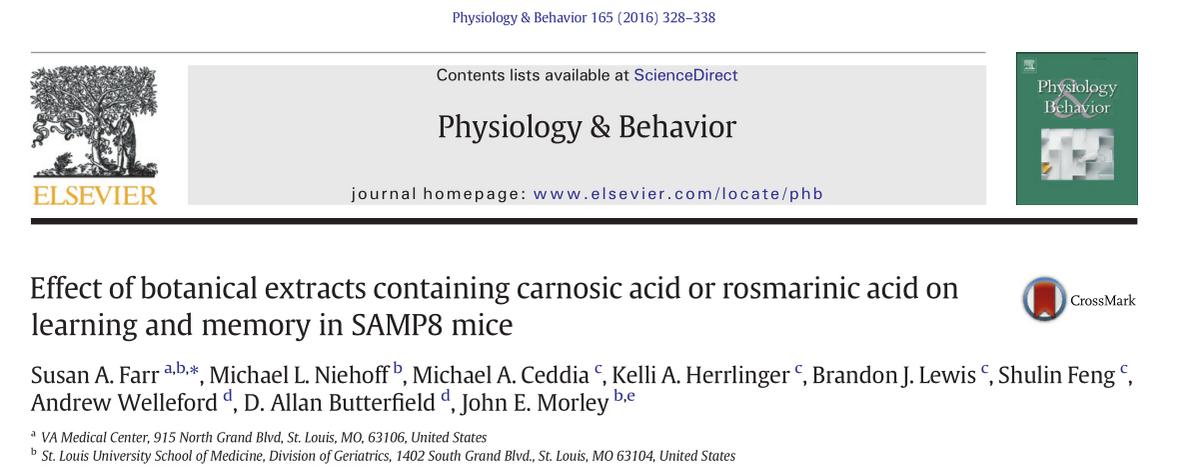Natural brain anti-aging agent – a natural extract of rosemary and spearmint
【Literature Interpretation】
In October 2016, a research team from Saint Louis University and the University of Kentucky published an article in the journal Physiology & Behavior on the effects of sage and rosemary acid plant extracts on learning and memory in SAM8 mice. The results showed that sage and rosmarinic acid, the natural products extracted from rosemary and spearmint, helped to prevent learning and memory impairment associated with aging mouse models.

In this trial, 9-month-old mice were used as model organisms, taking rosemary extract (sage acid) and spearmint extract (rosemary acid) daily, respectively. After 90 days, as an experimental test. Mice taken with rosemary extract to improve mice's ability to acquire and hold in T-maze foot shocks, object recognition, and lever compressions. Spearmint extract improves acquisition and retention in the T-maze, avoiding foot shocks and object recognition. The results showed that spearmint and rosemary extracts had beneficial effects on learning memory and brain tissue oxidation markers in mice.
Note: Effect of rosemary extract containing 60% sage acid on T-maze foot suspension
In this trial, in mouse models of cognitive decline due to accelerated aging, mice showed the effect of preventing cognitive decline after administration of rosemary extract or spearmint extract. These results suggest that rosemary extract and spearmint extract are potential natural nutritional interventions to treat age-related cognitive decline.
【Excerpts】
current study evaluated effects of two proprietary antioxidant-based ingredients, rosemary extract and spearmint extract containing carnosic acid and rosmarinic acid, respectively, on learning and memory in the SAMP8 mouse model of accelerated aging. The two rosemary extracts contained carnosic acid (60% or 10% carnosic acid) and one spearmint extract contained 5% rosmarinic acid. Three doses of actives in each extract were tested: 32, 16, 1.6 or 0 mg/kg. After 90 days of treatment mice were tested in T-maze foot shock avoidance, object recognition and lever press. Rosemary extract containing 60% carnosic acid improved acquisition and retention in T-maze foot shock, object recognition and lever press. Rosemary extract with 10% carnosic acid improved retention in T-maze foot shock avoidance and lever press. Spearmint with 5% rosmarinic acid improved acquisition and retention in T-maze foot shock avoidance and object recognition. 4-hydroxynonenal (HNE) was reduced in the brain cortex after treatment with all three extracts (P b 0.001) compared to the vehicle treated SAMP8. Protein carbonyls were reduced in the hippocampus after administration of rosemary with 10% carnosic acid (P b 0.05) and spearmint containing 5% rosmarinic acid (Pb 0.001). The current results indicate that the extracts from spearmint and rosemary have beneficial effects on learning and memory and brain tissue markers of oxidation that occur with age in SAMP8 mice.